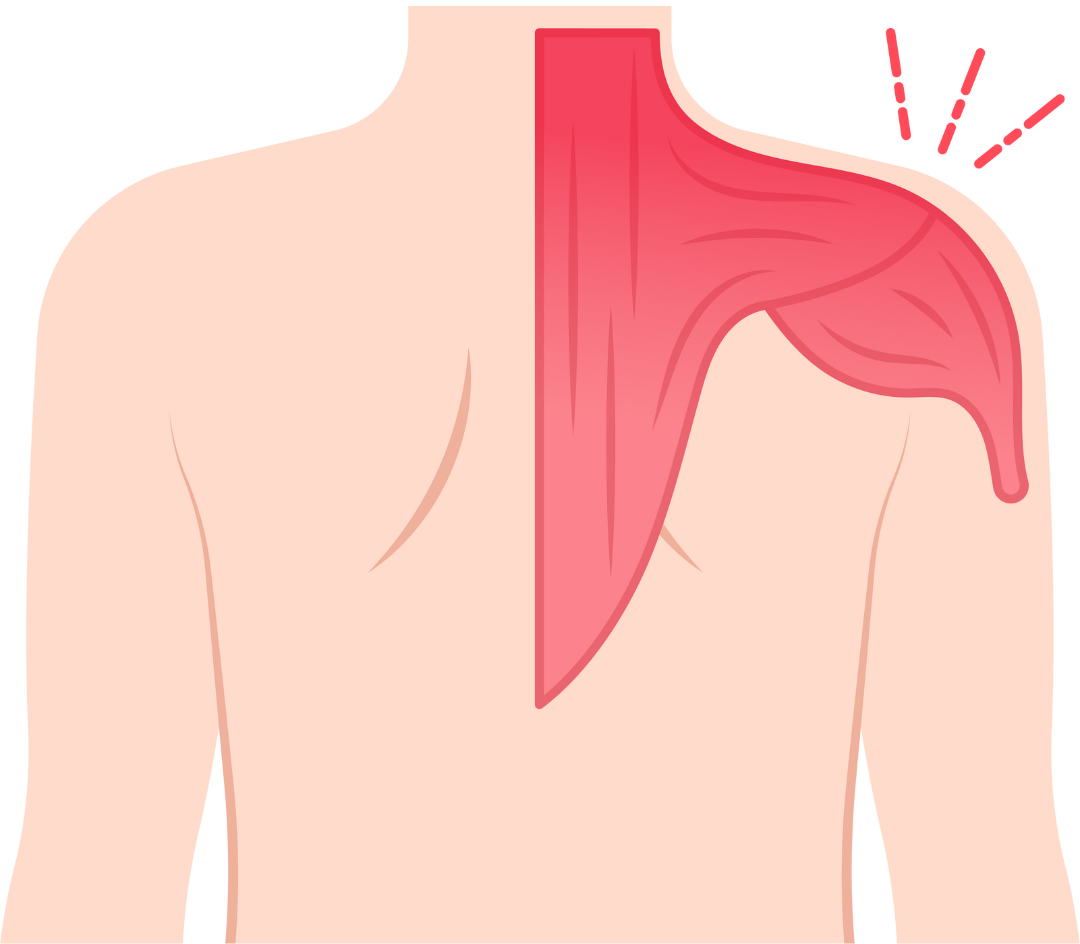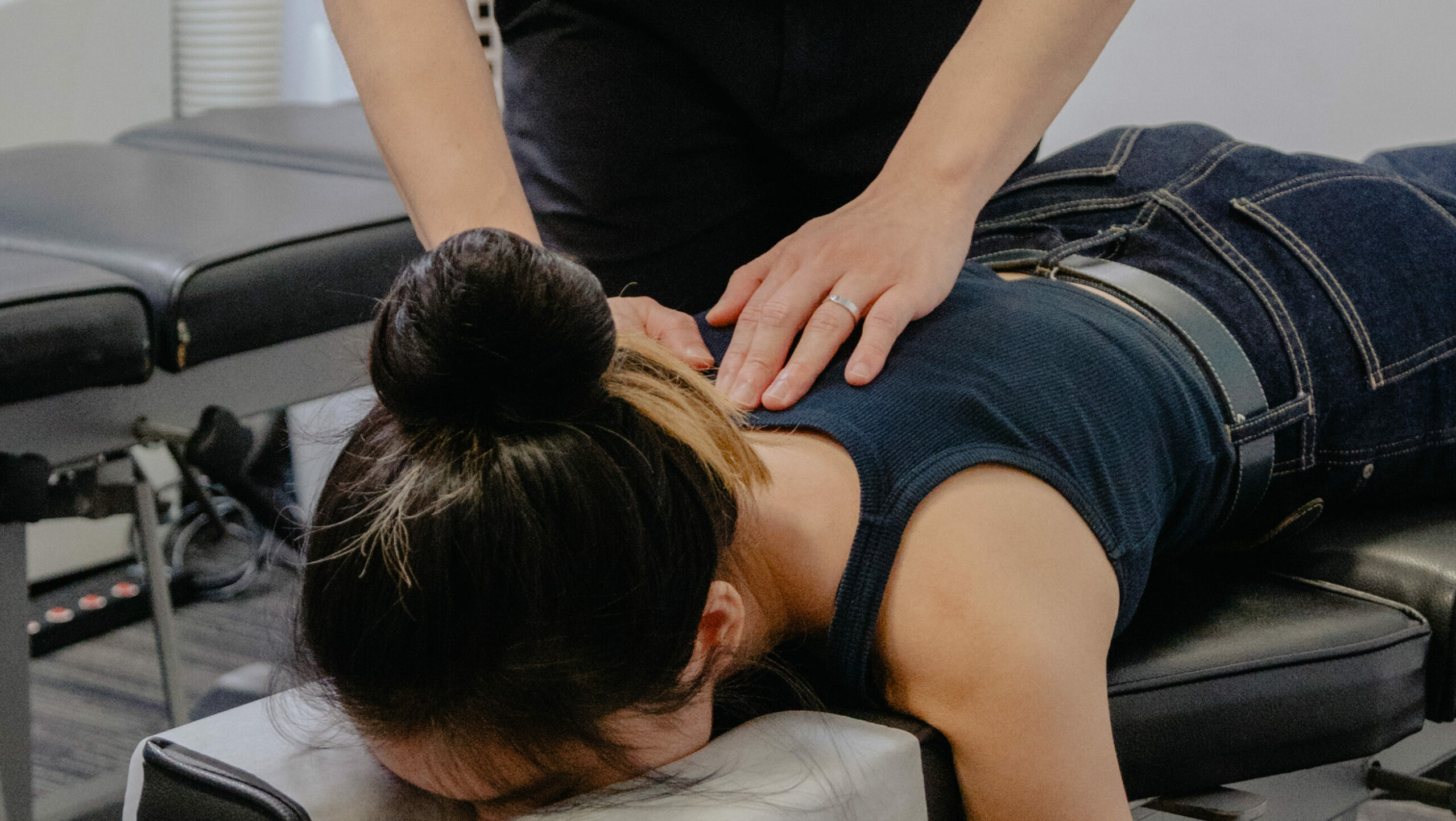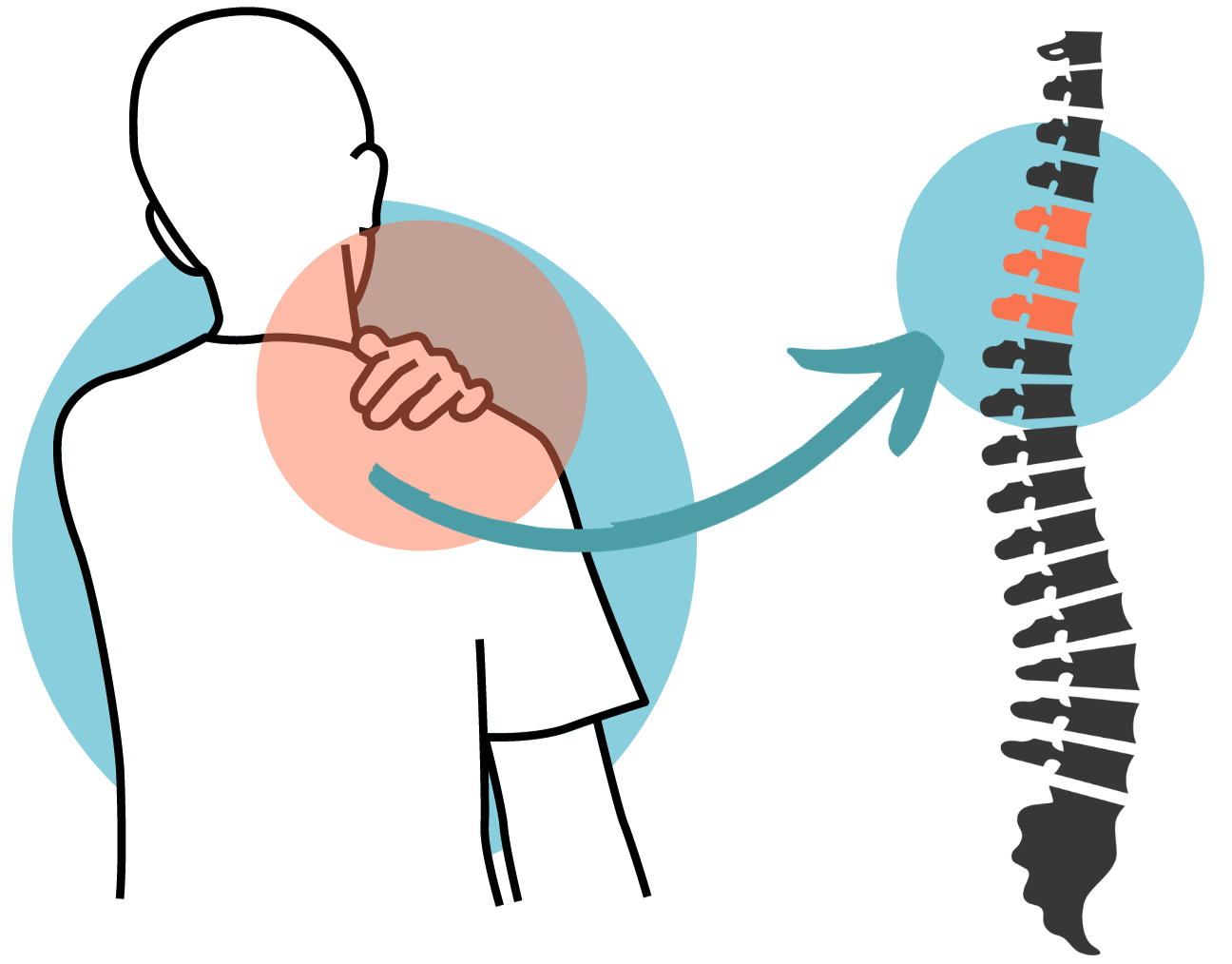Shoulder Pain – Treatment Without Medication
Whether it's a dull ache or a sharp twinge, it can interfere with your quality of life. Let's explore remedies beyond medication.


Shoulder pain can be a real nuisance, affecting your everyday activities and causing discomfort.
The good news is that you don’t always need medication to alleviate shoulder pain. Let’s explore various causes of shoulder pain, exercises and stretches to relieve it, remedies, and the types of professionals who can help you on your path to recovery.

Before we delve into the treatment options, it’s essential to understand the different types of shoulder pain. Shoulder pain is typically classified into two main categories:


Some examples that cause pain in the shoulder include:
In today’s digital age, many of us spend prolonged hours hunched over a desk, typing away on a computer or using a smartphone. This poor posture can contribute to shoulder pain as it places excessive strain on the neck, shoulders, and upper back.
Have you ever woken up with a sore shoulder and wondered why? Your sleeping position may be the culprit. Sleeping in an awkward position, such as with your arm under your head or your shoulder tucked beneath your body, can lead to discomfort and pain upon waking.
Waking up with shoulder pain is a common issue, and the culprits can vary. One primary reason is that during sleep, we often adopt positions that place excessive stress on our shoulders. When you sleep on your side, for example, and place your arm under your head or pillow, it can cause compression and strain on the shoulder joint. Additionally, sleeping on an old or unsupportive mattress can exacerbate the problem.
Another possibility is an underlying condition like rotator cuff tendinitis or frozen shoulder. These conditions may not cause immediate pain during the night but can lead to discomfort upon waking as you move your shoulder.
If you’re experiencing morning shoulder pain, consider coming in for a consultation to understand why and explore potential solutions.

When it comes to managing shoulder pain, exercise and stretches can be your best friends. Here are some effective exercises and stretches to consider:
Stand or sit with your back straight. Slowly roll your shoulders forward in a circular motion for 10-15 seconds, then reverse the direction. Repeat this several times to relieve tension in your shoulders.
Stand next to a table or chair and place your non-affected hand on it for support. Let your affected arm hang straight down. Gently swing your arm in small circles and then larger circles, gradually increasing the range of motion. This exercise helps improve shoulder mobility.
Stand with your back against a wall and your feet shoulder-width apart. Bend your elbows at 90-degree angles, with your arms parallel to the ground. Slowly slide your arms upward against the wall and then back down, making a “snow angel” motion. This exercise helps improve shoulder stability and mobility.
Lie on your unaffected side with your head on a pillow. Bend your affected arm at a 90-degree angle at the elbow and place your hand on the pillow in front of you. Gently push your affected hand down toward the mattress while keeping your elbow against your side. Hold for 15-30 seconds and repeat a few times. This stretch can help alleviate shoulder pain caused by tightness or impingement.
Stand in a doorway with one hand on the door frame at shoulder level. Rotate your body away from the hand on the door frame until you feel a stretch in your chest and shoulder. Hold for 15-30 seconds and repeat on the other side. This stretch helps open up the chest and alleviate shoulder tension.
Performing these exercises and stretches regularly can help relieve shoulder pain and prevent it from recurring. It’s essential to do them gently and without force, as excessive strain can worsen the discomfort. If you experience any pain or discomfort while doing these exercises, stop immediately and consult a healthcare professional.

In addition to exercises and stretches, several natural remedies can help alleviate shoulder pain and promote overall shoulder & upper back health. These remedies can easily be integrated into your daily routine:
Over-the-counter shoulder pain relief gels and creams can provide temporary relief. These topical products often contain ingredients like menthol or capsaicin, which create a warming or cooling sensation and can help alleviate pain and reduce inflammation.
Incorporating these at-home remedies into your daily routine can complement other care approaches to managing shoulder pain effectively. However, if your shoulder pain persists or worsens, it’s essential to consult with a healthcare professional to rule out any underlying medical conditions.
A physical therapist or physiotherapist is a specialist in managing musculoskeletal conditions, including shoulder pain. They can assess your condition, develop a tailored exercise program, and provide hands-on methods like manual therapy or ultrasound to alleviate pain and improve shoulder function.
Learn more about a physiotherapist’s approach from our sister brand, City Osteopathy & Physiotherapy.
While chiropractors and massage therapists can provide relief for some types of shoulder pain, it’s essential to understand their roles and limitations.
Massage therapy can be beneficial for relieving tension and muscle tightness in the shoulders. If your shoulder pain is primarily due to muscle knots, trigger points, or general muscle tension, a skilled massage therapist can provide relief through various massage techniques. Regular massage sessions can help maintain shoulder flexibility and reduce the risk of future discomfort.
However, it’s essential to remember that these therapies may not be suitable for all types of shoulder pain, especially if it is caused by underlying structural issues or medical conditions. Always consult with a healthcare professional for a proper diagnosis before seeking chiropractic care or massage therapy.

Yes, there are several shoulder pain clinics in Singapore staffed by experienced healthcare professionals who can diagnose and address your shoulder pain effectively. These clinics often offer a range of services, including orthopaedic consultations, physical therapy, and advanced diagnostic imaging.
When choosing a clinic, consider factors such as location, reputation, and the expertise of the medical team. Reading patient reviews and seeking recommendations from friends or family members can also help you make an informed decision.
Here at Chiropractic Singapore, our team of experienced practitioners are equipped and dedicated in managing nerve function, aiding shoulder pain relief.
It's important to note that chiropractic care is not a one-size-fits-all approach, and the choice of adjustment technique may vary based on the patient's condition, preferences, and the chiropractor's expertise. Before undergoing any chiropractic care for shoulder pain, consult with a qualified chiropractor who can assess your specific needs and create a personalised care plan.

The number of chiropractic sessions needed to manage shoulder pain can vary widely depending on the cause and severity of your condition. It’s essential to have a thorough evaluation by a chiropractor who will assess your specific situation and develop a personalised pain management plan.
After the initial phase of chiropractic care, some individuals with chronic shoulder pain may choose to continue with periodic maintenance chiropractic care. These maintenance sessions, typically occurring less frequently than their previous care plan, are aimed at preventing the recurrence of shoulder pain and maintaining optimal spinal health.
It’s important to note that individual responses to chiropractic care can vary. Some people may experience rapid relief and require fewer sessions, while others may need more extended care to achieve the desired results. Your chiropractor will continuously assess your progress and make necessary adjustments to your care plan.
In addition to chiropractic care, your lifestyle factors play a crucial role in managing shoulder pain. Your chiropractor may provide guidance on posture, ergonomics, exercises, and stretches that you can incorporate into your daily routine to support your upper back health and reduce the need for frequent chiropractic sessions.
Ultimately, the duration and frequency of chiropractic sessions for shoulder pain should be discussed with your chiropractor. They will consider your specific condition and goals to create a tailored care plan that best addresses your needs.
While shouder pain may be concerning, most cases of shoulder pain can be effectively managed without the need for surgery, especially when addressed early. If you’ve been experiencing persistent shoulder pain and find that it’s not improving with home remedies or stretches, it’s advisable to seek professional care. Identifying the underlying cause of your neck pain is crucial in order to prevent it from getting worse.
At Chiropractic Singapore, our team of experienced professionals specialises in diagnosing and addressing shoulder pain, and we can assess whether chiropractic care can provide the relief you need. Many individuals have successfully overcome shoulder pain with the right care plan and time.
We invite you to visit one of our four convenient locations for a comprehensive spinal check-up, which can be the first step on your path to recovery.
Note: The above information is not a substitute for a diagnosis or any form of medical care. Symptoms and treatments differ from person to person, and one should consult a chiropractor or a medical professional for an accurate diagnosis and recommendation.
A pain-free 2026 starts with understanding your spine.
Get your spine checked for 75% OFF, at just $26 (U.P. $105)!
Available at all 5 clinics islandwide till 31 Jan 2026.
Enter your e-mail to start the booking process.
Enjoy $55 off your first check-up (U.P. $105) using the promo code ONLINE50 at check-out.
Pssst… is it your birthday this month? Click here for an exclusive deal 
Enter your e-mail to start the booking process.
Note: X-rays and the first adjustment are not included in this promotion. For the safety of our patients, there will be no adjustments during the first visit.